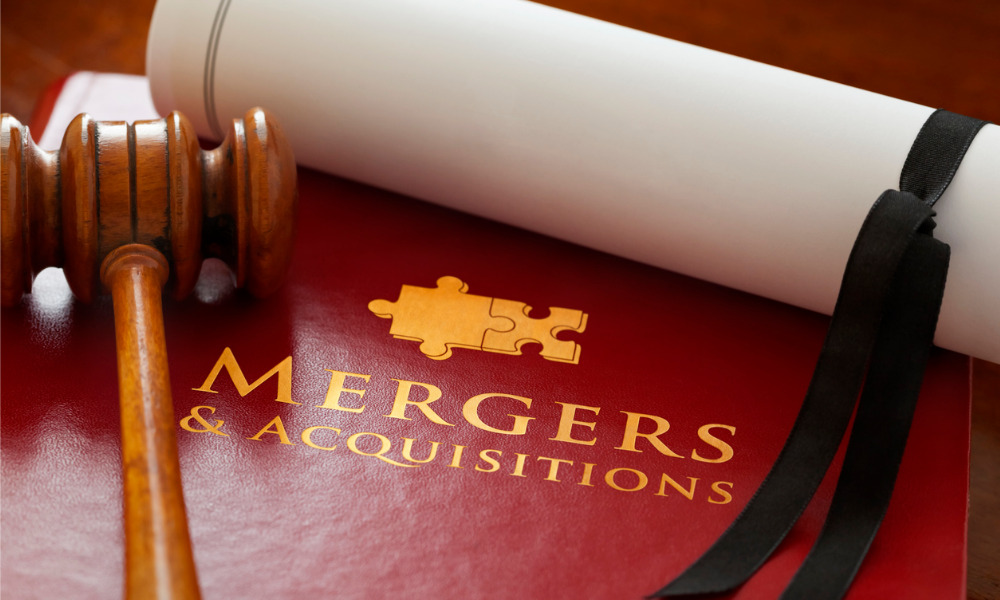Reaping the benefits of acquisitions (or mergers and takeovers) does not come without any responsibilities. One of these is to comply with laws and regulations on acquisitions in business.
What are acquisitions in business law?
Acquisitions in business are transactions between two businesses where one business (the acquiring business) purchases the stocks, shares, or assets of another business (the target business). It will result in the acquiring business taking control over the operations of the target business or dissolving the target business.
Acquisitions vs. Mergers vs. Takeovers
Mergers and takeovers differ from acquisitions in business based on their outcomes.
Recent Articles
Mergers result in a new business when two businesses merge or amalgamate with each other.
This is not the case for takeovers and acquisitions, since the target business is fully absorbed or integrated by the acquiring business.
Takeovers are also called “hostile acquisitions”. The purchase is made with resistance from the target business’ management or employees.
Acquisitions, meanwhile, are friendly transactions completed upon the agreement of the two businesses.
What are the regulatory issues in mergers and acquisitions?
Numerous regulatory issues affect mergers and acquisitions in business. In Canada, these regulatory issues may either be federal laws and regulations, or provincial and territorial legislations pertaining to a specific matter. These regulatory issues are:
- Anti-trust or competition laws
- Corporate and securities laws
- Investment laws
- Taxation
This is why engaging in the services of a mergers and acquisitions (M&A) lawyer is important. A lawyer can advise businesses involved in M&As either as an acquiring or a target business.
Aside from these regulatory issues, hiring a lawyer to carry out due diligence is crucial to the success of the M&A.
What are the laws and regulations on acquisitions in business?
In relation to the regulatory issues affecting mergers and acquisitions in Canada, various federal and provincial laws must be complied with. This is also to prevent any sanction, penalty, or court actions that may affect the completion of the acquisition.
Competition Act
The Competition Act is federal law which governs anti-trust and regulation of a healthy competition among commercial sectors in Canada. The Act also ensures that M&As do not result in monopolies or lessen the competition in the country.
Notification (Part IX)
According to the Act, there are certain transactions that fall under a Notifiable Transaction (Section 110):
- Acquisition of assets
- Acquisition of shares
- Amalgamations
- Combinations, such as:
- formation of unincorporated combinations to carry on business
- acquisitions of an interest in unincorporated business combinations
These transactions will require businesses engaged in the M&A to notify the Competition Bureau through a Pre-Closing Notification or a Pre-Merger Notification, provided that certain thresholds are met.
Otherwise, penalties will be imposed on the business and its officers. Offences include:
- the failure to correctly notify the Competition Bureau when needed
- the failure to implement a notifiable transaction before the expiry of the waiting period
- the failure to observe any order by the Competition Tribunal regarding the transaction
Thresholds (Part IX)
The following thresholds will trigger the mandatory filing of a Pre-Merger Notification with the Competition Bureau:
1. Transaction‑size threshold: C$93 million for 2023, when it:
- exceeds the book value of assets in Canada; or
- exceeds the annual gross revenues from sales in or from Canada that are generated from the assets in Canada
2. Party-size threshold: C$400 million, which pertains to the acquiring and target company’s:
- combined book value of assets in Canada; or
- combined annual gross revenues from sales in, from, or into Canada
3. Shareholding threshold: when the purchaser gets:
- more than 35% voting interest in a private corporation (or already has more than 35% and the purchase will result in 50% voting interest or more); or
- more than 20% voting interest in a public corporation (or already has more than 20% and the purchase will result in 50% voting interest or more)
Note that transaction-size thresholds are reviewed yearly by the Minister of Innovation, Science and Industry due to inflation. Party-size thresholds are not adjusted annually.
Read more about a recent acquisition challenged by the Competition Bureau, and how was it resolved:
We have reached an agreement with Superior Plus Corp. to address competition concerns with its acquisition of Certarus Ltd.
— Competition Bureau Canada (@CompBureau) May 31, 2023
The agreement aims to preserve competition in Canada’s portable heating fuels market.https://t.co/GdUn28Apxc pic.twitter.com/PNTnDXrOZd
To learn more about the Competition Bureau’s powers in relation to acquisitions in business, consult a lawyer in your province. Businesses based in Vancouver can consult with the leading mergers and acquisitions lawyers in British Columbia as ranked by Lexpert.
Investment Canada Act (ICA)
When foreign investors are involved in acquisitions in business, the provisions of the Investment Canada Act (ICA) will apply.
Notification and Thresholds (Part III and Part IV)
Like the Competition Act, a Notification must be sent to the Director of Investments prior to the closing of the investment or 30 days after its closing.
Thresholds are also set by the ICA:
1. Direct acquisitions of control by private sector investors of non-cultural Canadian businesses:
- from countries that have a free trade agreement with Canada – C$1.931 billion
- from WTO countries that don’t have a free trade agreement with Canada – C$1.287 billion
2. Direct acquisitions of control by state owned enterprise (SOE) investors from WTO countries of a non-cultural Canadian business – C$512 million
3. Acquisitions of control of cultural Canadian businesses (whether investors are from WTO countries or not):
- direct acquisitions – C$5 million
- indirect acquisitions – C$50 million
Amounts above the threshold will trigger a review to be done by the relevant Minister.
National security review (Part IV.1)
A foreign investment may also be reviewed when it’s deemed to be harmful to Canada’s national security. Here, the Minister of Innovation, Science and Economic Development (ISED) shall send a notice to the prospective investor regarding the review, which must be completed within 45 days.
Although not required, foreign investors may also voluntarily file for a notification to trigger the 45-day review by the Minister.
Who regulates mergers and acquisitions in Canada?
These are the main regulating agencies according to the laws and regulations on M&As in Canada:
- Competition Act: Competition Bureau, which includes the Competition Tribunal
- Investment Canada Act: the Minister of ISED, and the Minister of Canadian Heritage
- Income Tax Act and other tax regulations: Canada Revenue Agency
- Canada Business Corporations Act: Corporations Canada
- Laws on securities: the respective provincial securities commission (e.g., Ontario Securities Commission; British Columbia Securities Commission; Autorité des marchés financiers)
Interested in learning more about the laws and regulations on acquisitions in business? Consult with the Lexpert-ranked best mergers & acquisitions lawyers in Canada today!
Related Articles You Might Like:
Risks of mergers and acquisitions: what they are and how to avoid them





